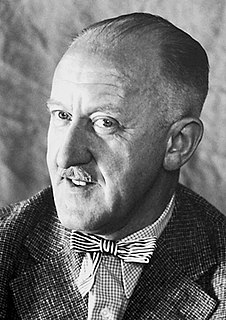A Quote by Ted Malloch
Myth: There's conflict between selfish free markets and a benevolent world of human sympathy.
Related Quotes
What I tried to show is that this idea of this fundamental conflict between savagery and civilization goes back to the very beginnings of Western history. I go back to the Greeks, I go back to the Romans. You can read Homer. And of course Homer has his great heroes involved in this myth, this wonderful mythic contest with savage tribal peoples, half-human monsters on distant parts of the world.
We must remember that there is a great difference between a myth and a miracle. A myth is the idealization of a fact. A miracle is the counterfeit of a fact. There is the same difference between a myth and a miracle that there is between fiction and falsehood -- between poetry and perjury. Miracles belong to the far past and the far future. The little line of sand, called the present, between the seas, belongs to common sense to the natural.
"Free markets" is a very general term. There are all sorts of problems that will emerge. Free markets work best when the transaction between two individuals affects only those individuals. Most often, a transaction between you and me affects a third party. That is the source of all problems for government. That is the source of all pollution problems, of the inequality problem. This reality ensures that the end of history will never come.
But myth is something else than an explanation of the world, of history, and of destiny. Myth expresses in terms of the world - that is, of the other world or the second world - the understanding that man has of himself in relation to the foundation and the limit of his existence. Hence to demythologize is to interpret myth, that is, to relate the objective representations of the myth to the self-understanding which is both shown and concealed in it.
This was the first time that he has ever looked into the labyrinth of the human soul. He was very far from understanding what he saw. But what was of more value, he felt and suffered with her. In years that were yet to come, he relived this memory in song, in the most beautiful song this world has known. For the understanding of the soul's defencelessness, of the conflict between the two poles, is not the source of the greatest song. The source of the greatest song is sympathy.
Liberty is not about class war, income war, race war, national war, a war between the sexes, or any other conflict apart from the core conflict between individuals and those who would seek power and control over the human spirit. Liberty is the dream that we can all work together, in ways of our choosing and of our own human volition, to realize a better life.

































